|
Genres, Themes, Actors, and Directors:
- Comedy
- Jacques Tati Films
Review:
Jacques Tati’s fourth feature-length film — after Jour de Fete (1949), Mr. Hulot’s Holiday (1953), and Mon Oncle (1958) — was this enormously budgeted spectacle (the most expensive made in France to that date) which lost money and bankrupted Tati, yet remains a personal favorite for many. Because I’m not a Tati fan, I’ll cite extensively from DVD Savant, who in his review seems similarly attempting to make sense of a film which perhaps he appreciates more than enjoys. He notes:
“Playtime is as subversive and important as anything in the French New Wave. It’s a completely uncompromised, lavishly filmed vision as personal as anything by David Lean or Stanley Kubrick. Since it’s so clearly aimed at its own inspiration and not the box office, Tati grows in the mind as one of the most pure cinema artists that ever was. It’s indescribable, baffling, and definitely not a mass-audience movie, yet it was shot in 70mm!”
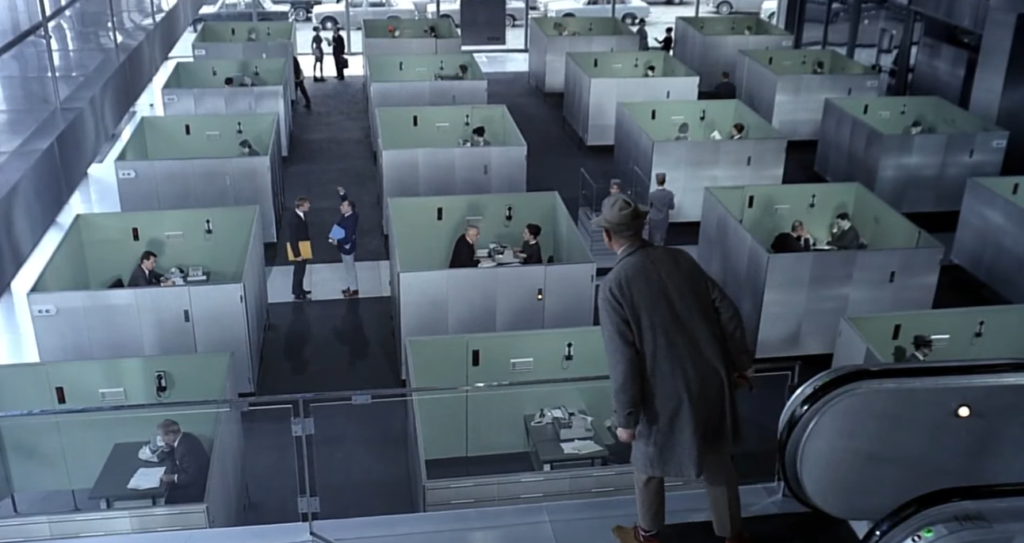
In terms of plot — what plot? Who needs one? Writing in his essay for Criterion, David Cairns refers to this film’s plot as “slender to the point of deniability.”
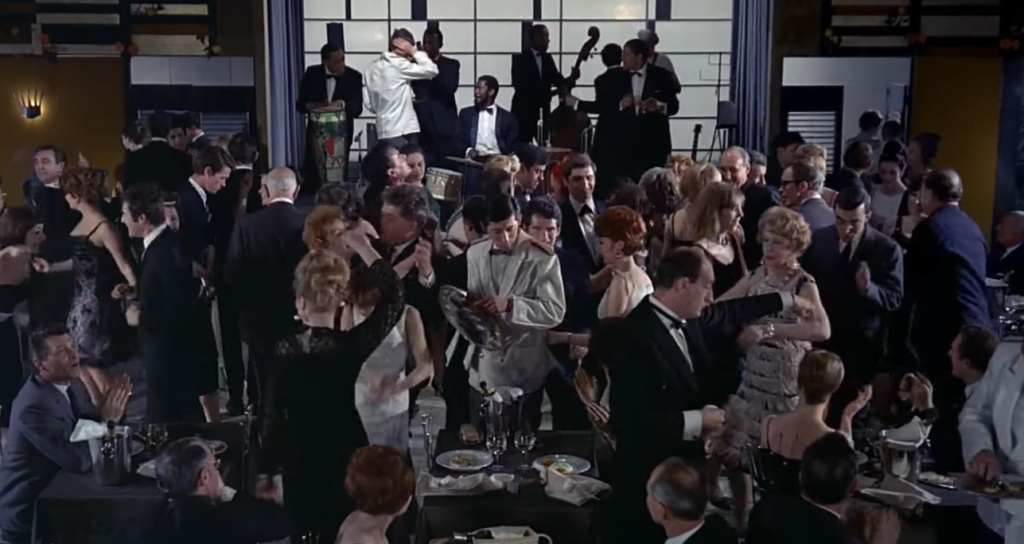
Meanwhile, DVD Savant explains:
“The shots are always very wide and open to the possibilities of action and development from any direction. Hulot is the ostensible main subject, but he’s as randomly observed as anyone else in the show.”
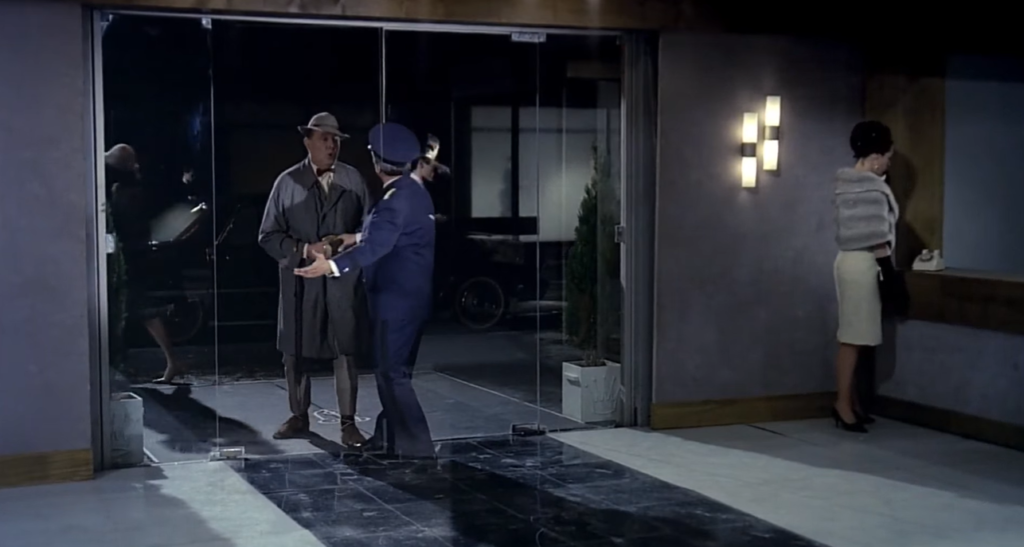
“Droll humor is the most we get: very often there’s nothing funny about what’s going on and Savant is sure that many a 1967 audience felt they were the victims of a colossal private joke. Movies that are private jokes, almost always become known by their other name, failures, and whether or not Playtime succeeds will depend on your inclination toward humor that is more conceptual than overt, and droller than droll. There are mistaken-identity gags, frustration gags, the works, but it all exists within this ‘you have to find it for yourself’ world that will either delight the viewer or bore him silly.”
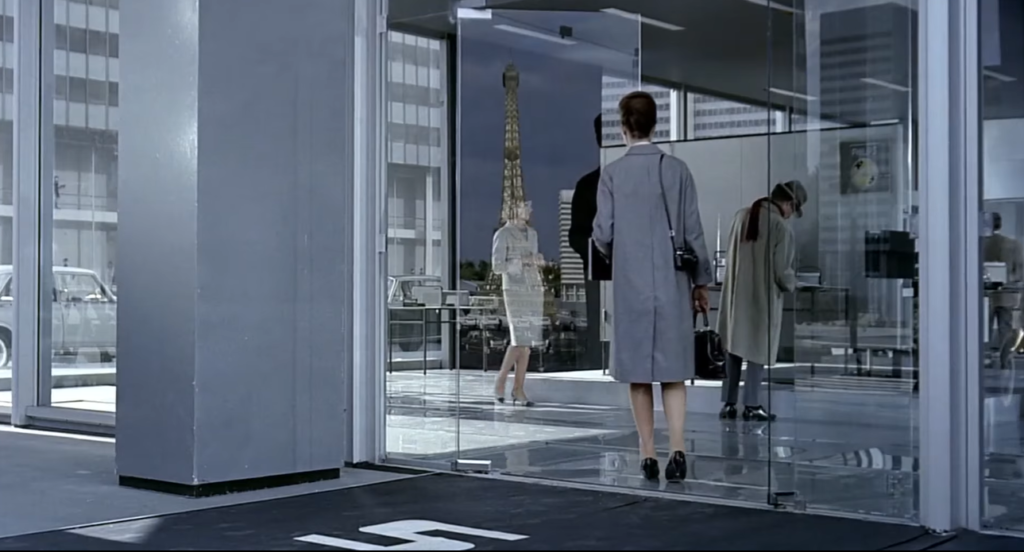
He adds, “In Playtime Tati shows us our world in transition, without making it into a dysfunctional nightmare, as in Godard’s Science Fiction comic book of a movie [Alphaville (1965)]. People adapt, every place that has happiness is magical, and the film ends with another crowded airport. This one transforms into a giant mechanized whimsical carousel.”
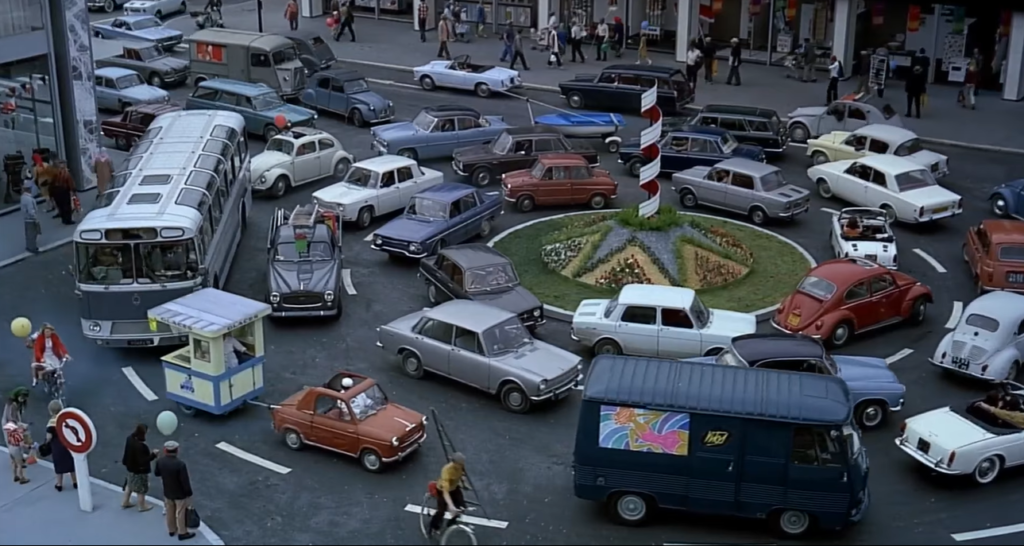
For an enjoyable primer on visual gags in Tati’s films, click here.
Notable Performances, Qualities, and Moments:
- Truly impressive sets
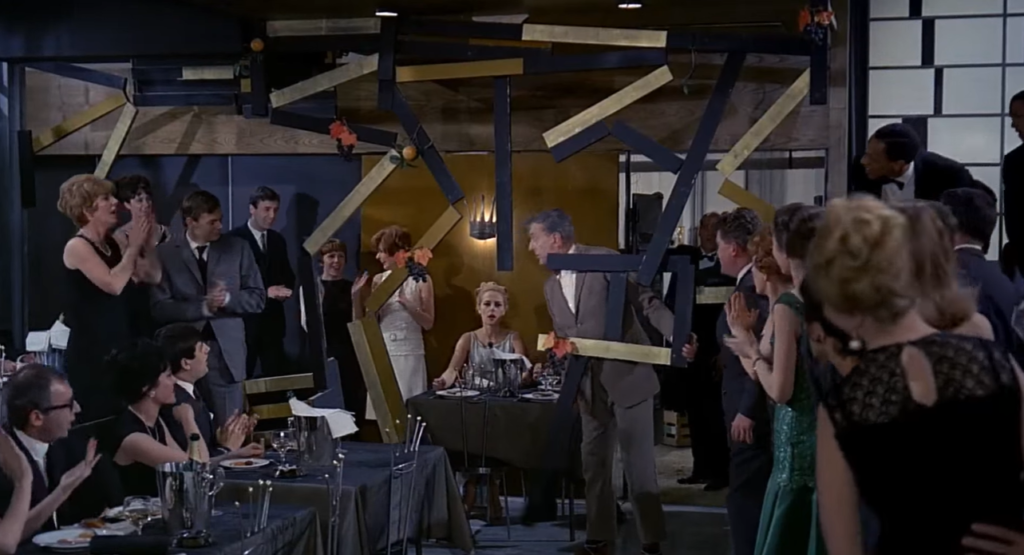
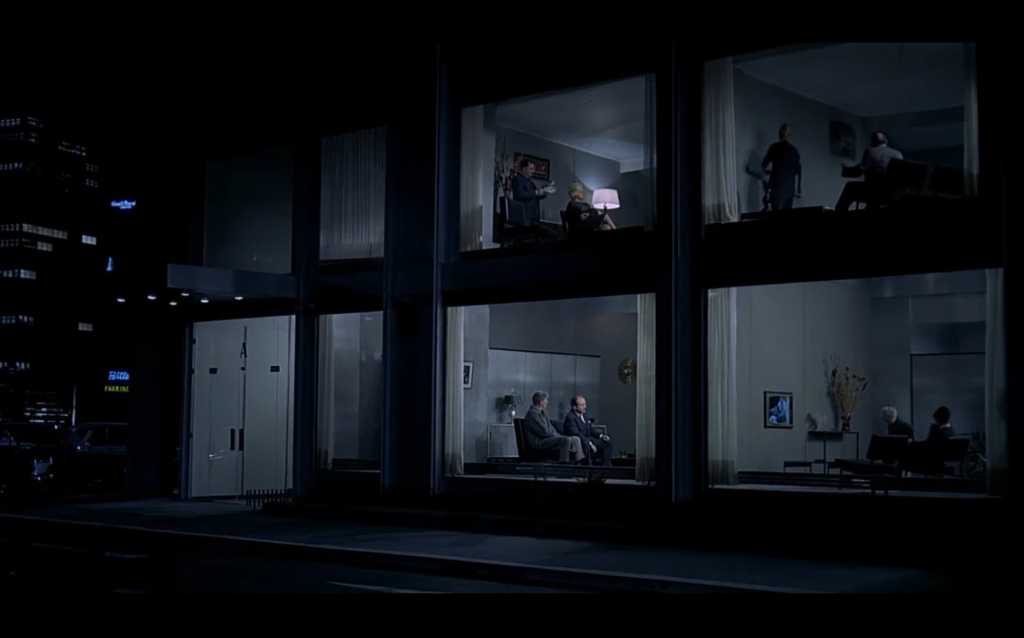
Must See?
No, though most film fanatics will naturally be very curious to check it out — and probably should, once. Listed as a film with Historical Relevance and a Cult Movie in the back of Peary’s book.
(Listed in 1001 Movies You Must See Before You Die)
Links:
|
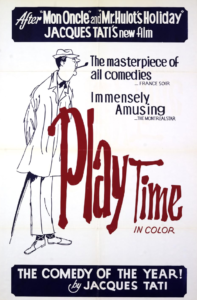







One thought on “Playtime (1967)”
A true classic and a remarkable achievement. Not my favourite Tati, that’s Mr. Hulot’s Holiday, but a fascinating, exquisitely crafted commentary on the encroaching modern way of life in the ’60s. A significant film in French cinema so on that score a must for FFs.